Nico Tortorella would like me to take some of the “likes” out of his quotes. “Make me sound smarter,” he jokes. But as the openly bisexual Younger star chats, it becomes clear that intellectual retouching won’t be necessary. Tortorella is a thoughtful guy—he describes himself as “a seeker”—and he’s made a name for himself in the past few years by talking openly and passionately about gender and sexual fluidity. Meanwhile, his character on the effervescent TV Land comedy is a bit adrift, having ending things with the show’s problematic leading lady Liza (Sutton Foster) at the end of last season. We’re only halfway through the show’s fourth season and twenty-something Williamsburg tattoo artist Josh has already made his way through one rebound fling. And, spoiler alert, on Wednesday night’s episode sparks seemed to ignite between him and Liza’s friend and colleague Kelsey (Hilary Duff). Tortorella called up Queerty recently to talk about his character’s journey, the responsibility he feels to his sexuality, and his greater project of learning about the ways that people love each other.
So, your character’s story this season is all about Josh without Liza.
I almost think that this season is about Josh without Josh too. I think that there’s a giant hole left in his heart from this relationship. He is really trying to fill it. He’s reaching and he’s reaching and he’s throwing shit inside of it that obviously isn’t right. We get glimpses of the Josh that we know when he tells Maggie [Debi Mazar] about Montana [Search Party’s Meredith Hagner]. But I think this is the most fucked up that we’ve seen Josh. But Josh does a really good job of hiding it behind that smile of his.
Were you excited to get to flesh the character out on his own terms a bit more?
Oh, yeah, totally. For sure. I mean “Josh without Josh” like…That’s exactly what it means: he’s trying to search for who this new Josh is, post-Liza. I think it’s just this journey that he’s on. Yeah, of course it’s been great to explore Josh outside of Liza—and also see Liza outside of Josh. But at the end of the day we have 22 minutes to hash out seven series regulars’ storylines, and to be honest there were scenes in Episodes 4 and 6 that, just because of time, didn’t make the cut. But I always want more. I’m that type of person. I think that Josh is such a layered human. He comes off just as an idiot sometimes, but I think he’s actually a lot smarter than…not necessarily how he’s written, but how he comes off onscreen.
I’ve enjoyed getting to see you interact more with other characters this season. Obviously something has been brewing between Kelsey and Josh. Did that come out of…
Nico and Hilary?
How about we take this to the next level?
Our newsletter is like a refreshing cocktail (or mocktail) of LGBTQ+ entertainment and pop culture, served up with a side of eye-candy.
Yeah, Nico and Hilary. Your real life dynamic.
Yeah, honestly I’ve been saying it since the first season: I think that it would be silly to not have a storyline with Hilary and I. Our relationship is just riddled with sexual tension! And it obviously comes off like that on camera too. I love Hilary. She is one of my favorite people, let alone celebrities that I have ever spent time with. She’s just such a humble human being. I don’t know, she represents something that’s a lot more traditional than I do and we have a good time getting under each other’s skin in a safe sparring manner. And I think that’s what this relationship on camera looks like. But obviously it will be very problematic to have Josh and Kelsey together in any sort of way because the show is so female friendship-driven.
Do you think fans of the show are shipping those two characters?
I think there’s a split. I’ve heard both arguments. But I think just like the Josh and Liza and Charles [Peter Hermann] and Liza…people go back and forth. There’s a fluidity, if I may, to all of this. It all depends on the episode.
Funnily enough, what happens with Josh and Kelsey in this season, I was like, “Darren, don’t be silly! You know the second that you see Hillary and I on camera, you’re gonna want to fucking write more!” And he was like, “I don’t know…” Two days later, he came up to me after he watched the dailies and was like, “Nico, you were so fucking right! I don’t know what we’re doing here!” But that happens a lot on a show like this. The writers don’t have the storylines completely mapped out, they’re not married to anything. They’ll watch what happens and the chemistry that brews in all of these relationship and they’ll manipulate the storylines accordingly.
Well, that’s like life, isn’t it?
Oh, yeah. Right? That’s like God. [Laughs]
So that kiss by the lake…
I’ve been waiting to kiss Hilary Duff for a long time. I think that should be the opener of this story!
Well, they decide not to pursue their attraction any further. So, is that it for Kelsey and Josh?
Yeah, honestly I think for now it is. The chemistry that they have is not going away, and I think that they really are honoring their friendship right now. And they also live together, right? This situation could get really messy really fast and hurt a lot of people. So, I think for right now, that’s enough.
It also reminds me of that old When Harry Met Sally thing, you know? Can a man and a woman just be friends?
But that’s also not a relationship you ever see on television. You never see two straight people, a guy and a girl, just being friends. I think that it’s actually really progressive to see the two of them kiss and for them both to be like, Maybe this isn’t the best idea, and we can still be friends. And there’s not stupid, drunk, hyper-male toxicity either. I think Josh totally gets it. Josh is a really nice representation of masculinity on television. I don’t know where that comes from… [Laughs]
Ok, well that segues nicely to my next question: Josh shares a lot of your characteristics. Not all, but there are similarities. Do you feel like your public profile has influenced the character?
That’s an interesting question. How do I want to answer this? I think that I am a seeker. I am a seeker of truth and an explorer, right? And I think that that inherently lives in Josh because of who I am. The way that the show has been written over the years, nobody really knew who Josh was after the first episode—or even after the first season, really. I think that even if you look at the way I’ve progressed over the last four years in my personal life—I got sober after the first season and really started taking my life seriously. And I think that Josh really had a transition after the first season that in one way or another mirrors that. So, Josh is a tiny, tiny piece of what I represent in my own world, right? And I think that future projects will showcase this so-called message and lifestyle and spreading of acceptance and love across the board of sexuality, gender identity, religion, race, color, creed, the whole situation.
Do you think Josh is the type of guy who would or has ever…
Sucked a dick?
…hooked up with guys?
[Laughs] I wouldn’t put it past him! I think that Josh is curious, but I think that Josh really loves women. We don’t have a lot of backstory from Josh at all. We don’t even know his last name! In my head, I think Josh has mommy issues more than daddy issues, and that leads him to be more inclined to search for the perfect woman. I think that he’s in touch with his feminine qualities, which is also what he loves in women. But it’s funny, you don’t even ever see him having a conversation with a guy. Josh is never next to another guy on the show. Josh is one of the girls! [Laughs]
Is it important to you, as an actor, to play straight characters?
Yeah, I think it’s important for me to play the spectrum. To play in the spectrum. Honestly, what makes me different from maybe other people in the community, or even straight people, is that I do that in my waking life all the time. I play on the sexuality spectrum, I play on the gender spectrum, sometimes on an hourly basis, just in my own head. It’s really not even for other people. I can wake up and feel super hyper masculine, super straight one day and then wake up and be a big ol’ queen the next day. It’s equally important to play those roles.
The show is full of really funny women—and they’re funny in a lot of different ways. Have you learned anything about comedy from your costars?
I would say that it doesn’t have to be one specific thing. There are such layers of comedy from the different women on this show. I don’t know. I don’t know how to answer that question really. The way that the writers attack the political landscape on such a simple, almost under the radar type of way, is just genius to me. The more that you can get a message across without hitting the nail on the head constantly, the more powerful it’ll be. Like if you can enter the subconscious, you’re winning the game.
You’ve said that you feel a responsibility to talk about your sexuality, about gender identity. That kind of rare for handsome leading men, it-boy types. How did you develop that sense of responsibility to talk about this stuff?
Well, I think it goes back to the idea of being a seeker. Once I realized that I had a journey in front of me and that I was never going to be completely satisfied or comfortable, and that every single day was a learning process and every single day I have to do the work on myself, I started to really notice it in other people—the lack of work that people are putting into their lives. I think true happiness really derives from doing the work. As soon as I started talking about this community—even just the B in LGBTQ+—I realized really quickly that nobody does. Nobody has. There’s zero positive representation in the media, outside the media, really anywhere. The bi-phobia that exitis is everywhere. I will have queens rant on Twitter that I am not a real person, that my existence isn’t valid.
Yeah, you’ve said recently that you and other bisexuals get a lot of flack from within the LGBTQ community for being bisexual. Why do you think that is?
I don’t know. Any type of phobia is your own self-loathing finding this outward projection. It makes me really sad. I don’t get angry at these things. It truly makes me sad that whatever is going on in someone’s life that they’re unhappy about, the only way they can get it out is to tell somebody else that their lifestyle or their beliefs are wrong. That transcends sexuality and gender identity. That goes from religion to race to what type of juice somebody wants in the morning. [Laughs] Everyone always has a fucking opinion about everything. The biggest problem we have is other people telling people how they should behave and that their lifestyles are wrong. As long as you’re not hurting somebody, as long as you’re not hurting yourself, I can support your choices, no matter what.
You mentioned doing the work of talking about the spectrum of gender and sexual identities, and you have to admit it really does feel like work sometimes. I’m thinking about the conversation you had with the hosts of The View recently. Is it every exhausting to you, having to explain gender and sexuality to people kind of from the ground up?
Yeah, when you have Joy Behar sitting next to me on The View saying, “Back in the day we used to say bisexuals like gay men and straight men,” that’s funny and that’s cute and all, but if you actually think about why I’m here and the message I’m trying to get across…I’m not coming onto this show to just share my white, privileged perspective. I’m coming on the show to share my platform with amazing people who are literally changing the landscape of gender and sexuality every single day. This is not my story. I’m a conduit of sorts, to give people platforms that do not have them. Honestly, there were a few hosts that said some problematic things. But, granted, that show runs really fast. It’s hard to get a word in. Everybody has an opinion. There’s obviously some massive generation gaps.
But it’s not unique to The View. Those conversations can be frustrating just in daily life.
Right, but the fact that that segment existed on a national television show on a major network—in the morning for that matter—is the most humbling experience that I have had in this industry thus far. The fact that you had six queer kids across the race and gender spectrum telling their stories? Come on! I broke down. I still get emotional thinking about it now. And that, for me, is progress and it’s part of the future that I really want to be a part of. Really at the end of the day, that’s my responsibility. And it’s not just for sexuality and gender expression. It’s for the way that people love each other across the board, in any type of relationship. It stems from how you love yourself and how we express our love for other people.
You explore the way people love each other on your interview podcast The Love Bomb. What has that project taught you?
Well, the podcast is a safe space to have these conversations. Very rarely in your life do you set up a time to sit with somebody and talk about the essence, the fabric of life in such a way—let alone go back and listen to it! When you can listen to a conversation that you’ve had about something so important—or even something not that important, really—you hear how you communicate with somebody else. You can hear how you’re thinking. You can hear how your thoughts turn into words, and that in essence is doing the work. If you take time and just study yourself—happiness and love only come from yourself, first and foremost. If it’s not there to begin with you’ll never get it from another person.






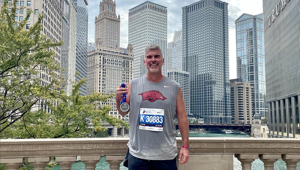
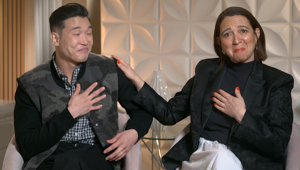
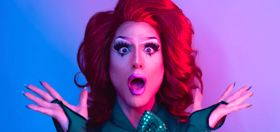

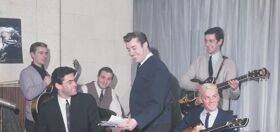
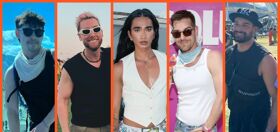


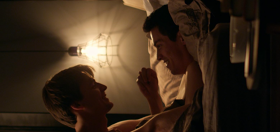
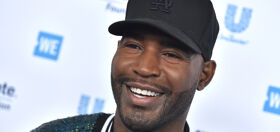
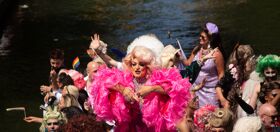

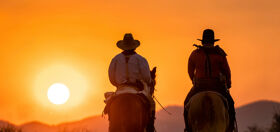
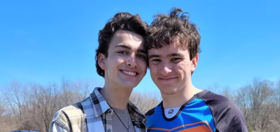
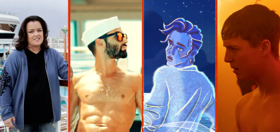
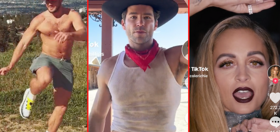
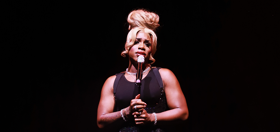

Xzamilloh
Oh, brother this was a chore to read in its entirety. I mean, good for him, but nothing was gained from this. At all.
Xzamilloh
Although, I will say the “bisexual flack” is usually one-sided and directed at men who are bisexual, namely because so many gay men have used “bisexual” as a stepping stone to gay.
Heywood Jablowme
“But that’s also not a relationship you ever see on television. You never see two straight people, a guy and a girl, just being friends.”
uhhh… except for a certain sitcom that was the second-most famous TV show of all time, in the 1990s. Has Nico has never seen it?
Kenney G
Never liked him and Never will, wish he would just go away
Eddie W
I can’t stand this guy, He’s annoying as Hell and should crawl back under his rock.
kent25
Why is this little Bit*h always on here? Go away Nicole, you are a pest
BennyP
My God can we go a week without seeing this clown, Every time you turn around he shows up, I don’t like this A**hole
PRINCE OF SNARKNESS aka DIVKID
Lol I don’t get the hate. Sure, he’s a little smug and self-important..like pretty much all pampered and indulged celebrities. But *this* level of vituperation?! Actually, it’s all too clear what the hate is REALLY about. Kinda embrassed for y’all lol
RomanHans
Smart people attack our enemies. Idiots attack our friends. Nico sounds like a really nice, interesting young guy, and he’s incredibly handsome and charming. I’m having a harder time than the rest of you to find a problem here but I’m thinking it’s because it’s in your heads.
Xzamilloh
Then “clearly” lay it out… who is embarrassed for random online people? That’s sad. Kinda sad for you… ell oh ell
scotshot
If you’re so embarrassed why do you spend your day on this website?
I’m embarrassed for you. Does Tiger Beat still have a website?
Teri
Same old song, nothing new. Biphobia, lesbians and the gays hate him, Yet he always seem to find every gay media outlet to whine and cry. Nico needs to just take a break, And let these media outlet report on something more important
kyle summers
Poor baby, those mean gays and lesbians won’t give me no love, lol
Go away Nico you are a pest and very annoying
Jaxton
If a man who is attracted to women can also be attracted to men, it destroys girl power. That is why women fear male bisexuality – it has the ability to totally destroy decades of female privilege as enabled by the women’s “rights” movement.
In terms of male-male, women are very homophobic and they are also hypocrites. They think that female bisexuality should be acceptable but not male bisexuality.
Women are encouraging this bisexual hypocrisy through their actions and words because they tend to use any lever they can find to fight their misguided gender war against all things male, including male bisexuality.
Xzamilloh
Beating the same drum but with a different name… hey, Brian, gurl!!!
jjose712
Why you changed your name? you are like the echo, always saying the same thing again and again and again, so it’s absurd to change your name when everybody is going to know who you are after reading the first sentence
Prax07
Yet another interview with this asshat? What’s Queerty’s obsession with this kid?
Bi phobia exists because most bi guys are liars, cheats, only use gay men for sex, and a good portion are also narcissists. That’s why a good portion of us have zero tolerance for bi men.
Griff_Greymuzzle
Prax07: “Most Bi Guys Are…” STOP. As a gay man who is dating a Bi man, THIS is the problem. If someone were to say “Most Gay men…: blah blah blah, we rage about generalizations and Not All Gay Men. So Stop your shit with the EXACT same behavior towards Bi men. My boyfriend is not a liar, a cheat and he’s about as far from a narcissist as you can get. YOU have low tolerance because of YOUR experiences. Look outside yourself. Grow a little. NOT ALL BI MEN ARE ASSHOLES AND JUST AS MANY GAY MEN ARE ASSHOLES (Like have you or your friends never been on Grindr??). Sexuality has no bearing on the person being an asshole or not…….
Prax07
Every bi man that I’ve ever intetacted with, wether it was as a work friend, an actual friend, a sex partner, or dated, every last one has been a liar, a cheat, a user, or a narcissist. If you believe your bi guy is none of those things you either got Extremely lucky and found the one decent one, or your in denial yourself. Bi-phobia exists because of the harm/problems/drama bi guys cause themselves.
Prax07
And what does being on grindr have to do with anything? I block or turn down bi guys on there since I refuse to date or hookup with those types of guys anymore.
Roan
This guy had his c*oc*k up Lindsay Lohan’s sour c*un*t. That should be enough phobia for anyone.
Donston
The majority of these comments are lame, and they seem to be coming from a singular troll.
Nico is definitely handling himself with a bit more class than he used to, and he’s being smarter with his choice of words nowadays. His PR team and social circle have probably talked to him a bit. He’s edited himself nicely these last couple of months. But I’m more prone to believe the stuff he was saying from the get-go.
I don’t hate the dude. I just don’t care about his “cause”, and I find his pretentiousness, his contradictory opinions and him endlessly using his sexual identity and behavior to constantly get attention to be grating. It’s especially grating for someone who’s supposed to have a legit career. And ultimately, I just don’t see why we should care about a man who has made it clear that he doesn’t see himself being in a real and committed relationship with anyone who isn’t a cis woman but who still mostly uses gay-based media to promote himself and his “cause”, a man who has hinted that his sexual attractions are greatly or even entirely gay-leaning but whatever type of relationship he has with a dude would be mostly sex-based, a man whose main social political stance seems to be the promotion of polygamy, and a man who has shown no interest in gay, lesbian or trans rights and causes.
And believe me, if this was a woman doing all of this I would feel the exact same way.
Louis
Years ago I tweeted this guy asking if he was gay friendly he immediately ignored me and never responded posting some trite superficial self absorbed nonsense as most celebs do.
The fact that he used the words LIFESTYLE and CHOICE in his statements is something I vehemently oppose and have no respect whatsoever for.
He sounds no different then any other ignorant and uneducated right winger and he is clearly a clueless narcissist.
Bisexuals are people they do exist and there is nothing wrong with them that’s not the issue for me.
His ego and clear ignorance and insensitivity however is the issue for me personally.
Donston
He made it pretty clear when initially “came out” that his sexual attractions were gay or extremely gay-leaning. He quickly became far less direct with that. More than likely, growing up having sex and relationships primarily with women he’s built an emotional and physical connection with women that he doesn’t want to let go of. He’s also clearly developed very narcissistic instincts. He wants to indulge his inherent and substantial sexual attractions while also maintaining a mostly “straight life”.
And you know what, all of that would be fine if he also wasn’t trying to use self-accepting and self-comfortable gay men and gay media to further his image and career, and if he was more willing to be 100% real. Why are you trying to pretend you’re this “open-minded” and “complex” guy when you’re just an extremely gay-leaning narcissist who wants to retain hetero-normalcy? He expects gay men to worship him just because he’s willing to admit he has sex with them. That’s the biggest problem I have with the guy. Be real about who you truly are and what motivates you. The phoniness and the deception are more annoying than the arrogance and obvious narcissism.
Donston
And no, I don’t believe everyone should live a life reflective of their sexual attractions. I’d guess that around 50% of men with inherent gay or gay-leaning sexual attractions live mostly “straight lives”. Some people shouldn’t live a life reflective of their sexual attractions depending on their psychology and what exactly they’re sexually attracted to. But don’t constantly bullsh*t people. Don’t use a multitude of labels, general pretentiousness and vague language to shield people from who you are. And don’t leech on to a “group” in order to make yourself feel better about yourself and use that group purely to boost your public status.
man5996853
I wouldn’t normally consider an actor on a barely-watched show on a barely-watched network to be an “it-boy”. That’s a stretch.
mauikamaaina
Nico and his character Josh in “Younger” are getting very stale, pedestrian, and tiresome. Nico tries too hard to be cute, quirk-some and edgy. He is a mediocre actor who will soon vanish from the entertainment scene.
Donston
That’s partly why he’s promoting his “fluidity” so hard. I highly doubt he’d be beating this dead horse so hard if he actually believed in talents or had any belief he could have a solid acting career. He’s also avoided any interviews where someone directly asks him what his his sexual attractions and romantic/emotional instincts are. It’s all just manipulative, press/attention driven mess.
kyle summers
Well he makes people not like him he’s a pest, He should just run a long he’s not making any fans here